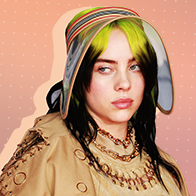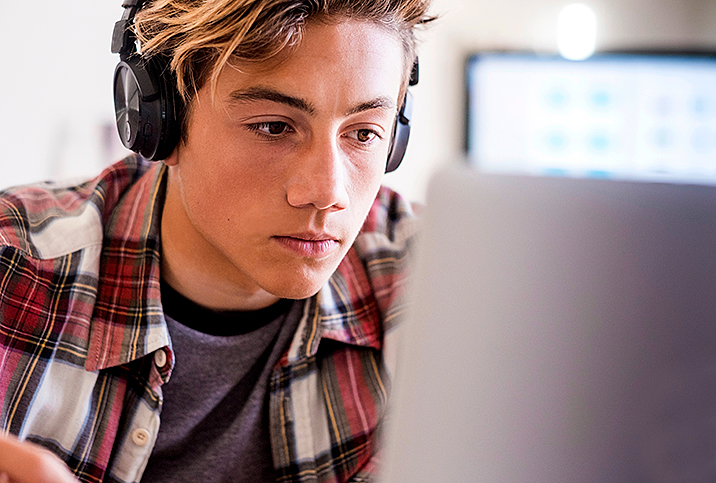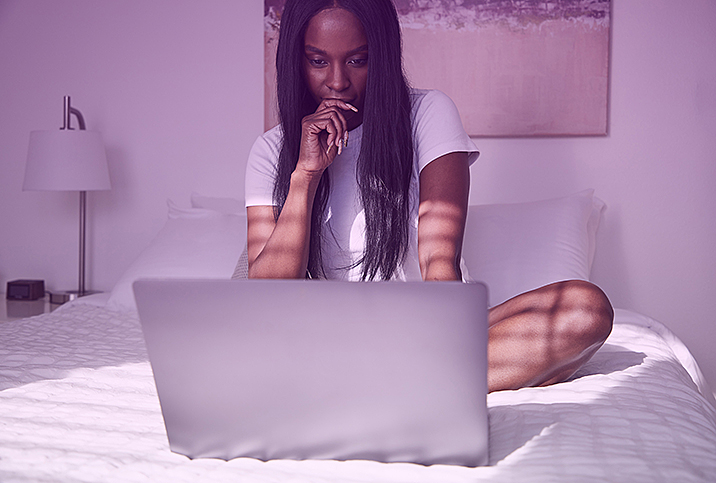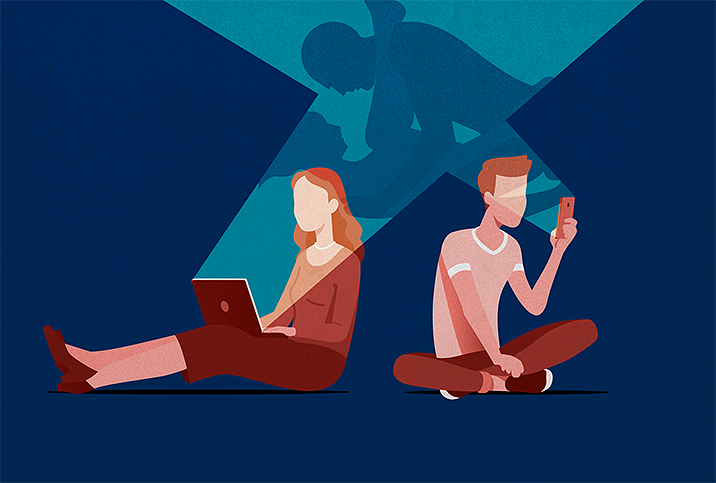Erika Lust on Porn Literacy As Part of Our Sex Education
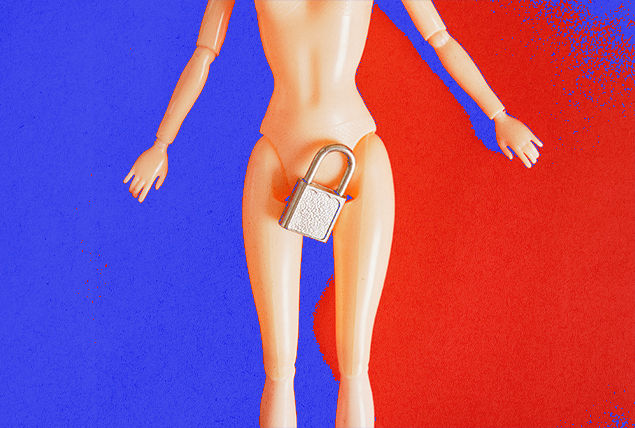
I first stumbled upon online porn—hardcore, rapey, un-unseeable online porn—in the eighth grade. At the time, like most people in their early teens, I had no concept of porn literacy, nor the ability to think critically about pornography.
My experience with pornography was typical of anyone growing up in the digital age. According to 2023 estimates provided by the nonprofit child advocacy group Common Sense Media, 3 in 4 teenagers have viewed online porn by the age of 17, with the average first exposure happening at age 12.
"Children are stumbling across porn as young as 9 years old," said Erika Lust, a Swedish feminist porn director, screenwriter and producer. "Porn has become the new sex ed. We can't ignore this. But we can teach, we can talk, and we can make children and teens aware and critical of the messages they are receiving."
A mother of two, Lust understands the challenges of discussing topics such as hardcore internet sex with children. But she also knows that addressing common concerns and encouraging critical thinking about porn is integral to understanding important issues like puberty, healthy relationships and consent.
Porn literacy is about understanding porn as just another type of media, created to send a message and make a person feel a certain way.
"Our kids aren't oblivious to sex," Lust said. "They hear about it and go straight to Google to find answers, where they're greeted by degrading representations of sex on the free tube sites. We can't stop kids from finding these sites, so let's educate them instead of ignoring this issue."
Concerns over the lack of education and discussion around porn drove Lust, along with husband Pablo Dobner—producer and CEO and co-founder of Erika Lust Films—
to found a nonprofit project, The Porn Conversation.
"The Porn Conversation provides families and educators with free and easily accessible tools to teach and talk with the younger generation—beginning with the topic of porn literacy," she said. "With The Porn Conversation, we encourage adults to talk to kids and teens about what they are exposed to online while giving them the tools to make smart decisions regarding porn and their relationships with themselves and others."
Is porn bad for you?
As an adult filmmaker, Lust wants to be clear: Pornography itself is not the problem.
"Porn is not inherently harmful or charged with violence and misogyny," she explained.
Lust believes the best porn can be realistic, inclusive and feminist while still exciting the erotic imagination. Of course, she readily admits much mainstream porn is none of those things.
"Most free online porn is made by cishet [cisgender-heterosexual] men for cishet men," she said. "There is a complete overrepresentation of male pleasure through excessive depictions of male-dominant sex acts."
Avril Louise Clarke, a Barcelona, Spain-based sexologist and The Porn Conversation's brand manager, agreed the most accessible porn on the internet is often the most problematic.
"When we look at the main sites out there—known as the 'tube sites'—oftentimes we can see messages in the titles, categories and content," she said. "Messages of what women's bodies should look like, and what races and sexual orientations are fetishized."
Instead of demonizing erotic content and condemning a natural curiosity concerning sex, she noted it's important to "teach and talk—not ban or block."
"Rather than promoting a 'pro-porn' or 'anti-porn' attitude, it's urgent for adults to encourage themselves and their children to think critically about the sexualized images they are exposed to," Lust said.
That's where porn literacy comes in.
So, exactly what is porn literacy?
Essentially, porn literacy is a set of skills needed to decode porn and question its messages.
"Porn literacy allows one to critique, question and understand that what we see in free online porn is not the whole picture," Lust said.
Clarke explained the concept is based on a decades-old educational framework called media literacy. Media literacy promotes curiosity and critical thinking toward all types of content, from Instagram captions to bus-stop ads, she said.
"Porn literacy is about understanding porn as just another type of media," Clarke said. "[Like other types of media], porn is created to send a message and make a person feel a certain way. It has power, influence and control over many people."
Providing young people with the tools to critique and question porn as a form of media can help build a society that is more discerning.
"If porn is addressed in an informed way regarding the type of messages it conveys, we can learn how to make sense of it as well as use it as a tool to connect with our sexuality, discover new desires and help us normalize our fantasies and kinks," Lust said.
How to talk about porn with your children
"It's never too late or too soon to start the porn conversation," Lust said. "By beginning these conversations early with our children, they will build trust, gain knowledge and prepare for what's to come."
"You don't need to be a sexologist to talk about sex," Clarke said. "Anyone can do it if you have the tools and an understanding of how to go about it."
The Porn Conversation includes practical tips about how to talk about porn with your kids. Here are four of them.
1. Educate yourself
"A lot of us didn't have sex education ourselves," Clarke said.
Therefore, developing your own porn literacy is a good place to start. To begin, Clark suggests asking yourself questions such as:
- How does the porn I consume uphold racist stereotypes?
- How does the porn I watch uphold misogynistic messages?
- What kind of messages did I learn from porn about sex that I found out to not be true or that don't align with my values?
2. Keep the conversation casual and calm
It's fine to feel nervous, but you want your child to know the topic you're discussing is perfectly OK. If you feel too uncomfortable to talk comfortably about sex and pornography, your kids likely will, too. Try to keep the conversational tone casual and calm, and avoid any negative body language or a tone that suggests your child is in trouble.
A couple of suggested conversation starters from The Porn Conversation may help:
- "I want to talk to you about something really important that we will talk about a bunch of times but starting could be weird…"
- "I know you may see porn at some point, it's practically unavoidable! So here's what you need to know about it…"
3. Encourage your child to be critical
Remind your children that what they are consuming is fantasy and not representative of respectful, realistic, consenting sex between adults. The Porn Conversation suggests making conversation points such as the following:
- "The people you see in porn are actors. They negotiate contracts and get paid for what they do. This is their job and they are not like this when they are not working."
- "They never show the conversations around consent that occur between actors before, during and after scenes."
- "Unlike what you see in porn, sex does not always have to include penetration and end in an orgasm. With every partner, there must be communication and consent present before, during and after sex."
4. Keep the door open
Even if your child doesn't want to talk about porn with you when you intend to, make sure they understand the door is always open. The Porn Conversation recommends saying things like the following:
- "That's OK, I understand this isn't the most comfortable conversation to have with me. You can always come to me when you feel ready."
- "Let's pause this conversation for now. I want to come back to it in the future when we both are ready to share more."
For additional tips and support, visit The Porn Conversation website, where you can download complete conversation guides for talking to kids of different age groups for free.
"We know this conversation is scary," Clarke said. "So we've structured our conversation guides to make sure you're checking in with yourself as well as [your role as] a parent."








